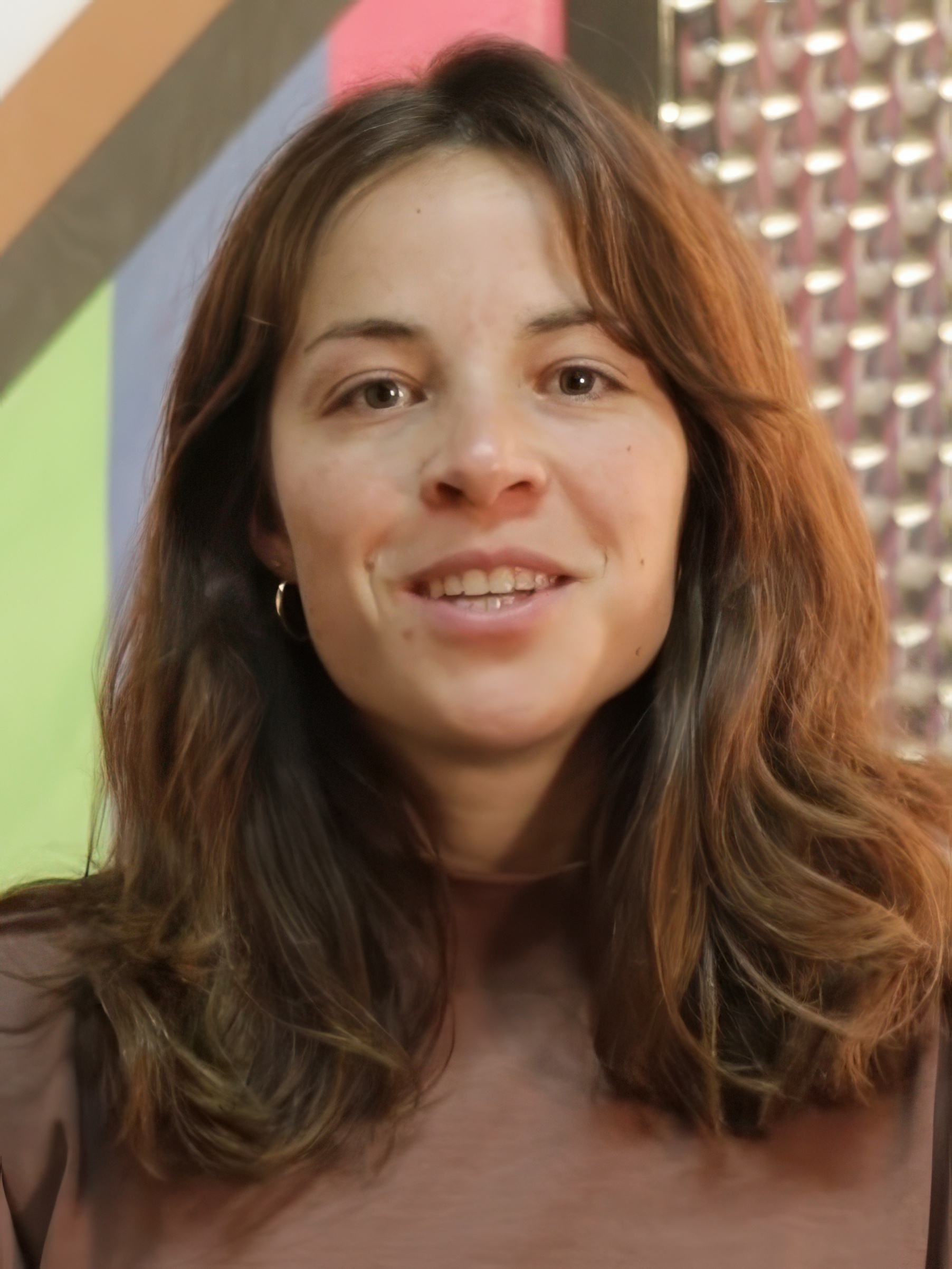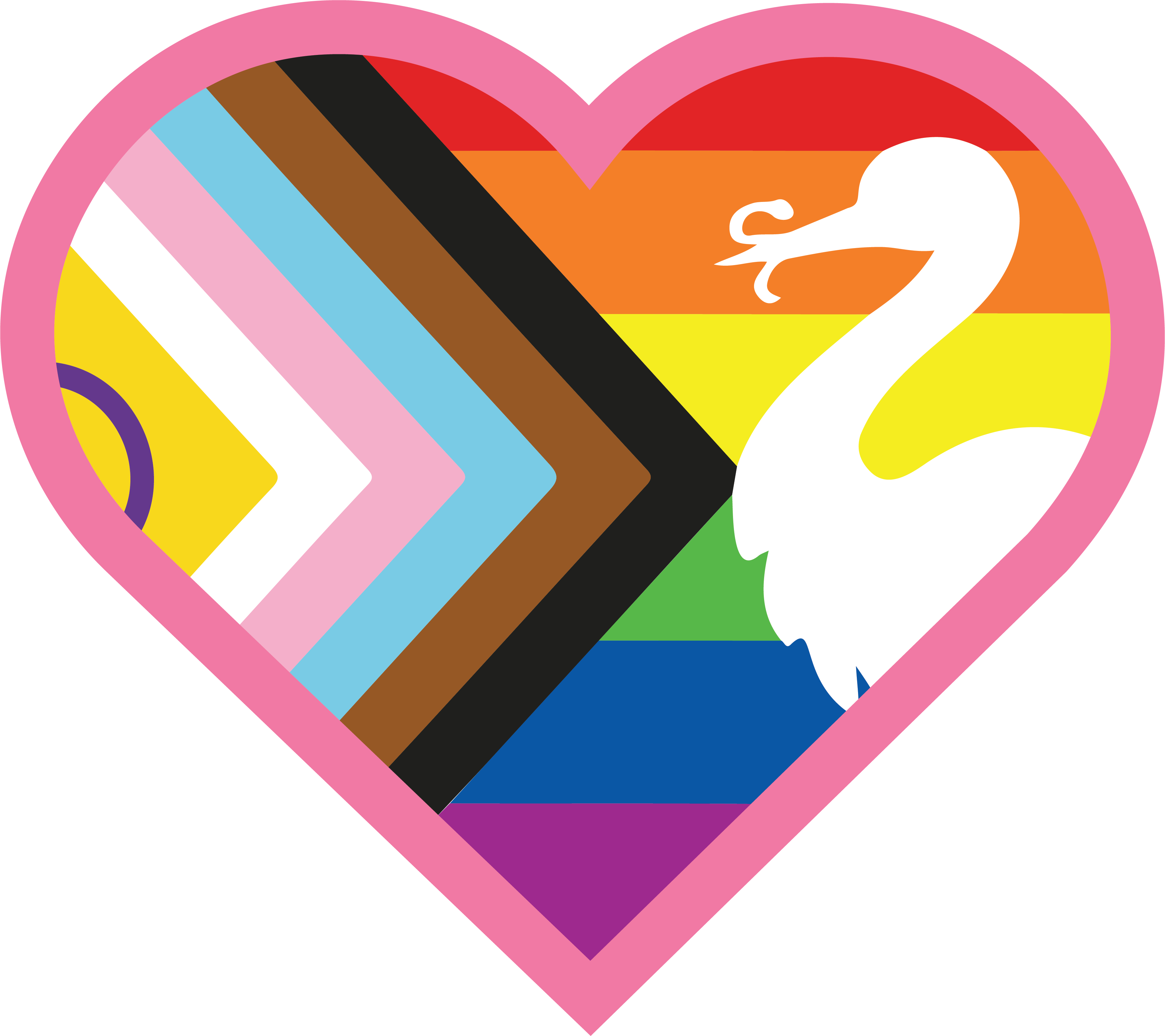Sacha tells her story about her journey toward (self)acceptance. Growing up in Friesland, she only found examples of lesbian women when she started studying in Utrecht. There, she learned to fully accept herself. Now, she is a proud woman who loves women and shares her stories in her work as a spoken word artist.
Watch the video here or read her story.
“The most important thing is to accept yourself. Everything you experience is valid and deserving of love.”
Sacha
Introduce yourself…
My name is Sacha. I am 27 years old and my pronouns are ‘she/her’ and I am attracted to women. Why I want to tell my story is actually for that younger Sacha who had no role model, no person, did not see herself. To be that now and hopefully inspire other young people in how you can be yourself and that you are allowed to be there and that all stories are allowed to be there.
How do you celebrate your identity?
The way I celebrate my identity hasn’t always been obvious. Because for a long time I struggled with being okay with who I am. At first I didn’t even know who I actually was. So that I’m attracted to women, that I’m a lesbian. Because where I come from that’s seen as a sin and so I actually just thought ‘okay yeah, then I’ll just fall for boys’. But they didn’t do anything for me and I didn’t know any better. I didn’t even know what love really was. Until I went to study in Utrecht and discovered ‘oh wait women’. I saw women kissing women and then a whole new world opened up for me of ‘okay this is possible but actually that’s not allowed because it’s a sin’. So that homophobia was internalized in myself.
And now 10 years later, that was 10 years ago, I notice that fortunately I no longer think ‘oh if there’s a button that makes me straight then I want to press it’. No, no, no, I’m real now. Imagine if that were there, I wouldn’t press it. No, I am honestly completely okay now with being a lesbian, that I am attracted to women. I love women. I love who I am and that I am allowed to love and experience love. So I celebrate it by being open about the fact that I am attracted to women and just walking hand in hand with my girlfriend on the street. Every now and then I still get a bit of a ‘can I do this?’, because sometimes a comment is still thrown at you. That you still keep an eye on that safety. But in general I am very happy that I have really come home to myself and know what it is and means what I feel.
What helped you discover yourself?
What helped me discover myself is to literally go to a different environment than where I grew up. I grew up in Franeker, went to a Christian high school in Leeuwarden and we had religion classes there and. Every morning we opened with a lesson from the Bible. The idea and the image of homosexuality was very homophobic: that’s dirty, it’s a sin. So I had really internalized that, because I thought okay, that’s how we look at it. Until I went to Utrecht and saw a woman kissing a woman and no one was beating them up or yelling. And a world opened up for me of ‘oh wow there are other ways to look at homosexuality’. In which you don’t see it as a sin, but as a form of love and a form of sexuality. Because ultimately heteronormativity is just a construct. So that did help me discover myself because I saw that representation and those examples of who I can be, who I am. And it also gave me a language and the image of what it means what I already felt. There were a lot of ‘oh yeah, oh yeah’ moments. Of ‘Ah, I was in love with Miss Helena, yeah yeah, in group 5 you know’. Or ‘Oh yeah, that’s why I was so nervous with that one friend’. Yeah, so that’s how I discovered it from ‘oh I’m into women’, that’s it.
What would you like to tell your younger self?
What I would like to tell my younger self, that really comes from a remark that stuck with me from a friend. That was just one night in the pub, really in the first year that I discovered that I am a lesbian. That she said to me: “Sacha, of course you want others to accept you, but the most important thing is that you accept yourself”. And that is what I would like to tell my younger self, that accept yourself, that is the most important thing. That you are okay with who you are and who you fall in love with and how you feel and that everything that goes through your mind, that you experience, is worthy and is allowed to be there. And that is what I would like to tell my younger self.
For me as a queer person, living in The Hague is searching, but less and less searching. When I came here in 2014, every gay bar was staffed by men and there was not really a place where you could go. But now you have Kaleidoscoop, for example, which organizes queer parties in The Hague. And there you also see women and non-binary people, fortunately. So there are more and more meeting places where you can go. So that’s nice.
Why is Pride The Hague important?
Pride The Hague is important to me because I think that every city should take a moment to celebrate who you are. Often queer people are somewhat invisible because of heteronormativity, which is still seen as the standard. I mean the concept of coming out of the closet, that shows that you are different while a heterosexual does not have to come out of the closet. So we already assume that everyone is straight, and if you are not then you come out of the closet. Actually, in an ideal world you would not have to come out at all. But that is not the reality. So I understand very well that it is still important to stand up for the rights of queer people, like for example in The Hague, the city of peace and justice.
What do you do yourself to increase visibility?
I am a spoken word artist. That arose from my need to give language to everything I felt. But also to what I could not read back or find about my sexuality and other taboo sensitive subjects. And in my pieces, my poetry, I therefore mention experiences or sometimes funny anecdotes to give more insight into what it is like to be a lesbian, and to question the norm. Also to question the norm as a lesbian woman who may look straight. I think that is really crazy. Because I often get the response ‘You don’t look lesbian at all’. But I mean, should I then say: ‘Oh but, you actually don’t look straight at all’. That feels a bit crazy. So by processing that in my lyrics and then sharing it on stage, I actually try to open a conversation about what you can experience and go through as a queer person. And how you can also put that into words and how other people can also recognize that. I really like doing that and continuing to do so. There are still plenty of stories that have not been written down. So we keep writing.
In the context of Pride The Hague 2024, stories are shared from people from the queer community of The Hague. If you want to share your own story, click here for more information.
More information about (the work of) Sacha can be found here.





